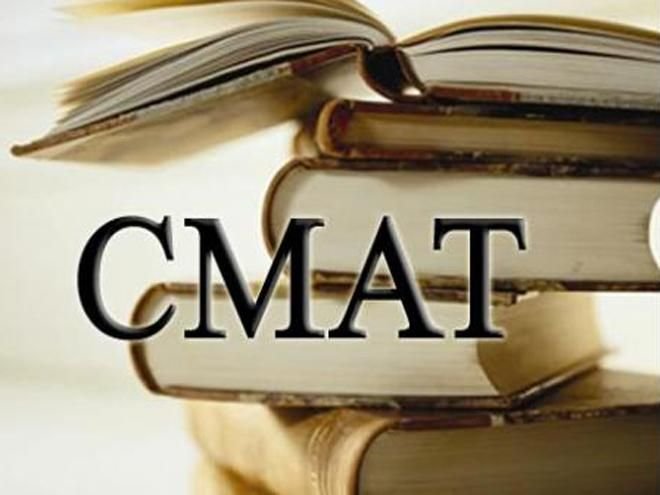CMAT
The Common Management Admission Test (CMAT) is a national-level entrance exam conducted by the National Testing Agency (NTA) for admission to MBA and PGDM programs in AICTE-approved institutions across India.
About CMAT
The Common Management Admission Test (CMAT) is a national-level entrance exam conducted by the NTA for admission to MBA/PGDM programs in AICTE-approved institutions across India. It assesses candidates’ abilities in quantitative techniques, logical reasoning, language comprehension, and general awareness.

Eligibility Criteria
a. Educational Qualification
- Bachelor’s Degree: Candidates must have completed a bachelor’s degree in any discipline from a recognized university.
- Final Year Students: Candidates in the final year of their bachelor’s degree can also apply, provided they meet the qualification requirements when results are declared.
b. Age Limit
- There is no age limit for appearing in the CMAT exam.
Exam Structure
CMAT is a computer-based test (CBT), usually conducted once a year, typically in April. It is designed to test quantitative, reasoning, language, and general awareness skills.
Exam Pattern
- Total Duration: 3 hours (180 minutes).
- Number of Sections: 5
- Total Questions: 100 questions (20 questions per section).
- Total Marks: 400 marks (each question carries 4 marks).
- Marking Scheme: +4 for each correct answer, -1 for each incorrect answer, and 0 for unanswered questions.
Section | Number of Questions | Marks |
Quantitative Techniques & Data Interpretation (QT & DI) | 20 | 80 |
Logical Reasoning (LR) | 20 | 80 |
Language Comprehension (LC) | 20 | 80 |
General Awareness (GA) | 20 | 80 |
Innovation & Entrepreneurship (optional section) | 20 | 80 |
Syllabus
The syllabus for CMAT covers key topics across each section. Here’s an overview:
a. Quantitative Techniques & Data Interpretation (QT & DI)
- Topics: Algebra, Arithmetic (Percentages, Profit & Loss, Interest), Number Systems, Geometry, Time & Work, Ratios, Averages, Data Interpretation (Tables, Graphs, Charts).
- Focus: Assesses mathematical and numerical problem-solving skills.
b. Logical Reasoning (LR)
- Topics: Puzzles, Arrangements, Blood Relations, Coding-Decoding, Series, Analogy, and Cause & Effect.
- Focus: Evaluates logical and analytical reasoning abilities.
c. Language Comprehension (LC)
- Topics: Reading Comprehension, Grammar, Vocabulary, Sentence Correction, Synonyms/Antonyms, Para Jumbles.
- Focus: Tests reading speed, comprehension, grammar, and vocabulary.
d. General Awareness (GA)
- Topics: Current Affairs, Economics, History, Geography, Science, and Polity.
- Focus: Assesses general knowledge and awareness of recent events.
Application Process
Steps to Apply
- Filling the Application Form: Provide personal, educational, and work experience details (if applicable).
- Uploading Documents: Upload a recent photograph and signature in the required format.
- Application Fee Payment: Pay the application fee online using debit/credit card, net banking, or UPI.
Application Fee
- General Category: ₹2000 (Male), ₹1000 (Female)
- EWS/OBC (NCL): ₹1000
- SC/ST/PWD: ₹1000
- Transgender: ₹1000
Important Dates
- Application Start Date: Usually in February.
- Application Deadline: Typically in March.
- Admit Card Release: A few weeks before the exam.
- Exam Date: Generally in April.
- Result Declaration: Expected within a few weeks post-exam.
Result and Selection Process
- Result Declaration: Results are announced on the CMAT website with a scorecard showing sectional and overall scores, along with percentiles.
- Score Validity: CMAT scores are valid for one year, enabling candidates to apply for MBA/PGDM programs in that academic year.
- Selection Process at Institutes:
- Based on CMAT scores, candidates are shortlisted by participating institutes for further selection stages, such as:
- Group Discussion (GD)
- Personal Interview (PI)
- Written Ability Test (WAT)
- Based on CMAT scores, candidates are shortlisted by participating institutes for further selection stages, such as:
Benefits of Qualifying CMAT
- Admission to Top B-Schools: CMAT scores are widely accepted by leading management institutes and colleges in India.
- Career Opportunities: Graduates from reputed CMAT-accepting institutes have good placement opportunities in diverse management roles.
- Flexibility: The optional section in Innovation & Entrepreneurship allows candidates interested in this domain to gain an edge.
